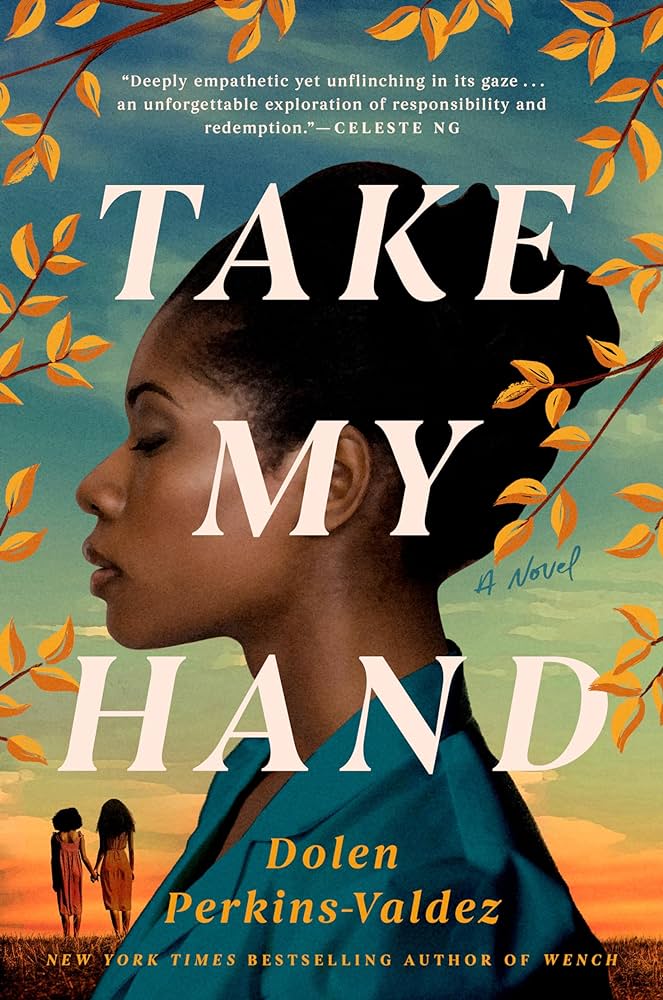You ever get that feeling you completely missed the point of a book? I feel this way about Take My Hand, which is something I entirely blame myself for. Perkins-Valdez wrote a beautiful novel about race and sexism and poverty in America. And Civil, her protagonist, is a wonderfully complex character with strength and power, but who doubts her strength and power throughout the length of the novel. She is human in that worst way, the way where we work hard and try our best and hope we’re doing good, but worry that ultimately, we not only didn’t help, but rather made things worse…
Civil is a Black nurse in the South in 1973, which is a sentence that bears a novel all by itself. Among her first patients are two very young, very poor girls who are scheduled to receive birth control shots. Civil hesitates, as well she should, and the story unfolds while many lives unravel. In the end, it seems that Civil regrets interfering in the lives of these girls. I think she decides that she inadvertently disrespected the girls and their family with her efforts to improve the quality of their lives. For example, she arranges for the family to move into a nicer living space, and she buys clothes for the girls. She even takes them to her house at one point so that the girls can take a proper bath and have their hair fixed. The story implies that by providing for this family, Civil has enacted some form of unwarranted control over them. The author compares the help Civil gives with the help the family receives from the state, then goes on to imply that just as it’s wrong for the state to wield power over the family (which the state certainly does), it’s equally wrong of Civil to do the same.
But this setup is wrong, in my opinion. I don’t feel that Civil was attempting to control anyone by simply trying to help someone in need. And all politics aside, who among us wouldn’t tear our sandwich in half to share with a hungry child? This is why I feel like I missed the point or lesson in this book.
I’d love to hear what others think about this book and this topic. And for those who have read this book, what did you think about the idea that the novel, To Kill a Mockingbird, is, at least in part, a story of how some white people “redeemed” themselves through Black people? This perspective never occurred to me, and now I want to read Harper’s novel again.
I will end by saying that I’ve never questioned the idea that the “we” in a novel included me. But I now see that most of the books I’ve read were written from a specific point of view. For the first time, I paid attention while reading Take My Hand, and I experienced what it felt like to NOT be included in that “we.” It was an eye-opening and enriching experience. One I deeply appreciate.
Read this book. Tell me what you think.
Follow me on Facebook and subscribe here!
Use this link to find this book in your local indie bookstore (our book-buying choices matter 🙂
